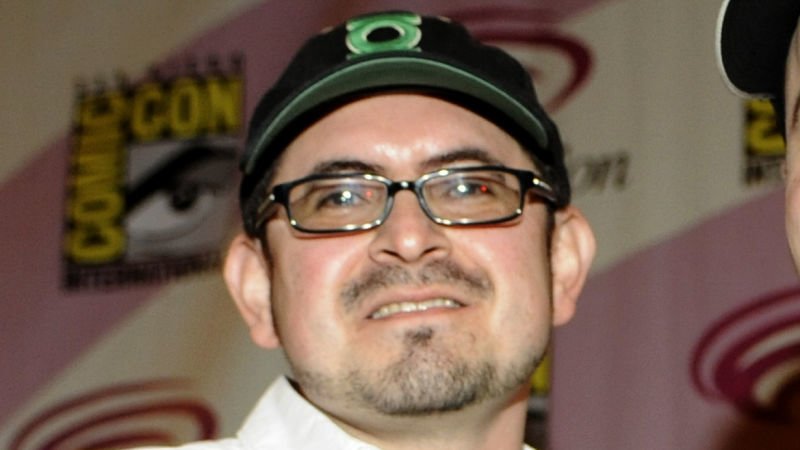
Well it’s about damn time!
After renewed allegations of sexual harassment surfaced in an article published by Buzzfeed last Friday, DC Comics has fired veteran editor Eddie Berganza. Berganza’s firing comes days after he was suspended following the article’s publication. This marks the end of an era at DC Comics, and I don’t say that to be sentimental.
The allegations against Berganza are nothing new. In point of fact, this is an issue that has cropped up time and again over the course of his two decades at DC. The claims in the Buzzfeed article are depressingly familiar to anyone who has been following the Berganza story (which was never exactly a well-kept secret) for any length of time. Groping, forcible kissing, various and sundry invasions of personal space. That was Berganza’s modus operandi in a nutshell. The comics press, in particular Bleeding Cool, has devoted more than its fair share of ink to this story over the years. However, last week marked the first time (to the best of my recollection, at least) that an outlet as mainstream as Buzzfeed has reported on the Berganza story. No doubt that and the impending release of ‘Justice League’ played a role in the publisher’s decision.
The firing was announced in a statement from Warner, which read in part:
Warner Bros. and DC Entertainment have terminated the employment of DC Comics Group Editor Eddie Berganza. We are committed to eradicating harassment and ensuring that all employees, as well as our freelance community, are aware of our policies, are comfortable reporting any concerns, and feel supported by our company.
That’s a perfectly good, if predictable statement to accompany this sort of thing. But while I applaud DC/Warner’s decision to fire Berganza, the sad fact is that this should have happened years ago. You see, the most galling part of the story, though, has arguably never been Berganza’s conduct – reprehensible though it is. Rather, that dubious distinction belongs to DC’s prior handling of the situation. When harassment complaints began to surface against Berganza, the response was not to discipline him, but rather to quarantine him. What this means is that they “restructured” the editorial offices and creative teams in order to minimize the extent to which Berganza would be working with women. As if this wasn’t already a ridiculous half measure, it failed to take into consideration Berganza’a eventual advancement at DC. Because, of course, he continued to advance. And not only did Berganza rise through the ranks, he has contributed to nearly every major storyline and publishing initiative at DC in the twenty-first century. Most glaringly, ahead of the publisher’s 2011 relaunch (dubbed ‘The New 52’), Berganza was promoted to executive editor. Following accusations of sexual harassment at the 2012 WonderCon, he was eventually demoted to his former position of group editor, which he had held barely a year earlier. Punishment, to be sure, but little more than a slap on the wrist.
And this managerial indifference inevitably affected the talent at DC. Writer Greg Rucka, for example, rather famously only agreed to take the reins of ‘Wonder Woman’ in last year’s ‘Rebirth’ initiative on the condition that Berganza have nothing to do with the title. And not to put too fine a point on it, but most writers and artists in the industry don’t have the sort of pull at DC that Greg Rucka does. Which brings us back to the “Berganza quarantine.” Did this prevent DC from hiring female creators? I’d like to think not, but it wouldn’t surprise me. We may never know for sure.
In either case, Berganza’s continued employment created an environment in which many women (understandably) did not feel comfortable working. Some left the company. Others have said that they opted not to work at DC because of Berganza’a reputation. In an industry in which women are already underrepresented, this is a serious cause for concern. Not only that, but as former DC editor Janelle Asselin ruefully explained to Buzzfeed, “We all left and he’s still there. That, to me, tells me what DC Comics’ priority is.”
The important takeaway here is not Berganza’s firing, but rather that he was allowed to remain in a position of power at one of the biggest publishers in the industry for as long as he was with little more than token disciplinary action. And Berganza is not the only serial harasser in the business. Comics have been a boys’ club for far too long, and a tolerance of this sort of behavior has in many ways become baked into the culture. Someday soon, we as a community will need to take a long, hard look in the mirror. And if the recent wave of abuse allegations coming to light is anything to go by, that day may be coming sooner than many of us expected.
